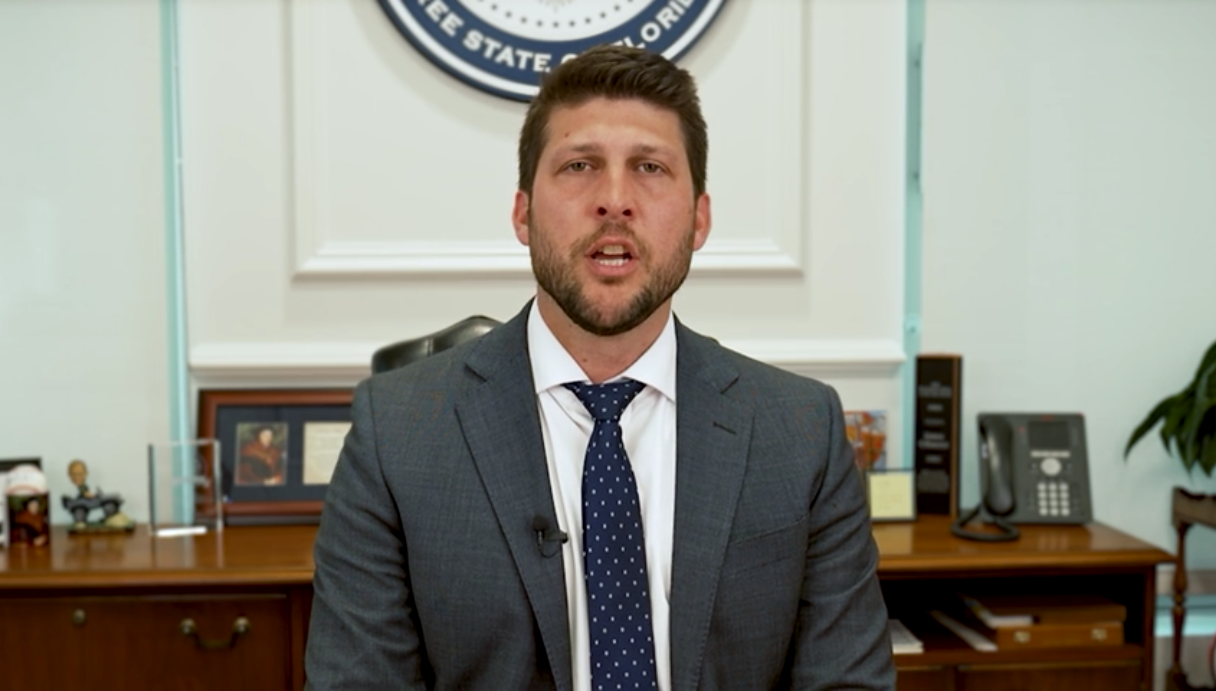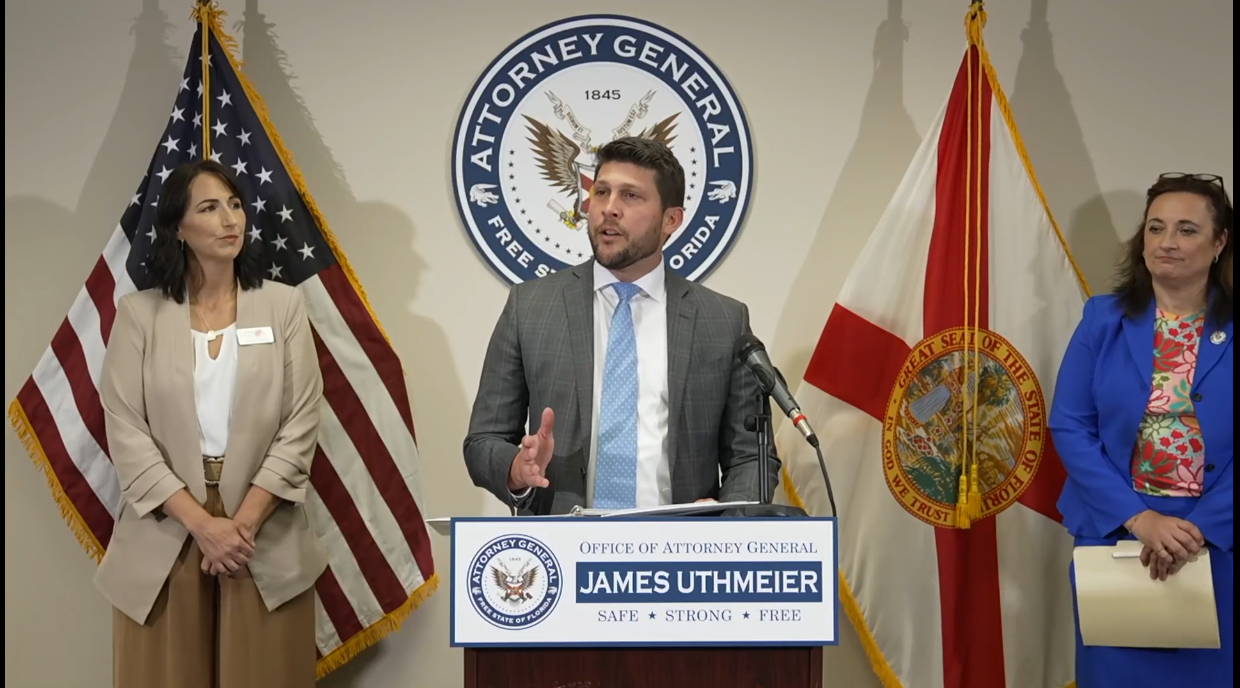Regardless of how a high-profile congressional election plays out, Randy Fine has officially left his Senate seat. Republican voters in Senate District 19 on Tuesday will choose the most likely person to succeed him later this year, with his predecessor clearly in the mix.
Republican Debbie Mayfield, a Representative and former Senator, holds a massive money advantage ahead of the SD 19 Republican Primary.
But she faces Tim Thomas, a former Melbourne City Council member widely seen as a favorite of Gov. Ron DeSantis; Marcie Adkins, a Republican leader who challenged Fine in a 2020 Primary; and Mark Lightner, a business graduate hoping to stand out as someone who isn’t a career politician.
Mayfield already enjoyed a legal victory in getting her name to appear on the ballot. Secretary of State Cord Byrd earlier this year disqualified Mayfield on the grounds that since, as a term-limited Senator, she could not seek this Senate seat in 2024, she should not be able to run in a Special Election months later to replace Fine, who resigned the seat to run for Congress.
But the Florida Supreme Court said Byrd erred both in reaching beyond the ministerial duties of running the Division of Elections and misreading Florida’s term limit rules, which only restrict nonconsecutive service in office.
Since the state’s high court validated her candidacy, Mayfield has enjoyed massive financial support for her campaign. Through March 27, Mayfield spent nearly $169,000 on the race. She enjoyed support thanks to numerous influential political operations in Tallahassee donating maximum $1,000 contributions to her campaign, including Associated Industries of Florida, as well as lobbying firms like Greenberg Traurig, Rubin Turnbull & Associates and Ronald L. Book Government Consulting.
Political committees controlled by Senate President Ben Albritton and Sens. Jim Boyd, Colleen Burton, Ed Hooper, Corey Simon and Tom Wright, all of whom previously served with Mayfield in the Senate, also donated.
That gave Mayfield an edge financially before touching political committees under her control, including Conservatives for Good Government and Friends of Debbie Mayfield, the latter of which reported almost $117,000 in spending as of March 19.
The next biggest fundraiser proved to be Adkins, who spent more than $37,000 on the race through March 27. Thomas spent more than $14,000 through that point, while Lightner reported about $8,500 in expenditures. None of the candidates had high-profile committees supporting their campaigns.
Thomas has leaned on his time as a teacher and ROTC instructor in the community, promising to expand civic education and invest in technology in the schools, a high priority on the Space Coast. He has even incorporated the image of a rocket ship into his campaign logo.
Adkins has focused on economic and infrastructure, while staking out an anti-development position and the need to improve the health of the Indian River Lagoon.
Lightner, meanwhile, has called for ways to engage young conservatives, and on his website slams politicians “playing musical chairs,” a pretty direct slight at Mayfield.
But Mayfield has leaned on the same message that helped her win a House seat in November and which fueled past Senate races. She has promised tax relief for families and to champion parental rights in the Legislature.
She also has stressed that she has the support of President Donald Trump, who technically endorsed her House campaign last cycle after she switched her presidential endorsement from DeSantis to Trump in late 2023.
Many suspect that move also motivated the qualification fight with the administration ahead of this election. But if DeSantis doesn’t want Mayfield back in the Senate, that friction hasn’t resulted in any massive investment in an opponent’s campaign.
Of note, Mayfield as a sitting Representative has spent much of the last month in the Legislative Session in Tallahassee, barring her from raising money for a campaign. That’s a drawback to running essentially as an incumbent, just as serving in the Legislature for the past two decades has drawn criticism of being a career politician.
The winner of the Republican Primary in SD 19 will advance to a Special General Election on June 10. The GOP nominee will face Democrat Vance Ahrens, whom Fine defeated in November for the seat.
Post Views: 0

 Politics8 years ago
Politics8 years ago
 Entertainment8 years ago
Entertainment8 years ago
 Entertainment8 years ago
Entertainment8 years ago
 Entertainment8 years ago
Entertainment8 years ago
 Tech8 years ago
Tech8 years ago
 Tech8 years ago
Tech8 years ago
 Tech8 years ago
Tech8 years ago
 Politics8 years ago
Politics8 years ago










